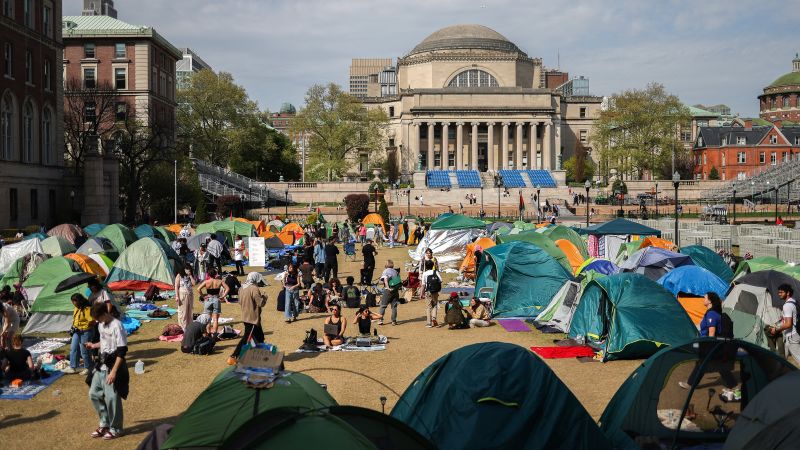A group of 13 conservative US federal judges have decided to not hire Columbia University law students or undergraduates due to the school’s handling of pro-Palestinian demonstrations on campus. The judges sent a letter to the university expressing their concerns about the campus being a hub for disruptive protests, antisemitism, and intolerance towards differing viewpoints, leading them to lose confidence in Columbia as an institution of higher education. Their decision was influenced by the university’s involvement in protests against the war in Gaza, which led to police intervention to dismantle protests and arrest demonstrators.
The judges who signed the letter were appointed by former president Donald Trump and primarily serve in Texas. They have significant influence in shaping the careers of law graduates as they typically hire clerks who can go on to secure prestigious and high-paying jobs. The judges outlined steps that Columbia should take, such as recommending serious consequences for students and faculty involved in disruptive protests. They also suggest identifying students engaged in such behavior so future employers can avoid hiring them to mitigate potential risks in the workplace.
Columbia University has a history of student protests, with varying levels of disruption over the years. The recent protests that led to the judges’ decision involved students taking over a building on campus, resulting in dozens of arrests. The judges believe unlawfully trespassing and occupying public spaces warrant incarceration, and they argue for universities to take measures to prevent future disruptions by finding and deterring students who engage in such behavior. This would require employers to take precautions when hiring graduates from institutions with a history of disruptive protests.
The judges assert that Columbia University has become an incubator of bigotry and intolerance, disqualifying itself from educating future leaders in the country. Their stance reflects a growing concern among conservative figures about the perceived lack of tolerance for differing viewpoints on college campuses. By targeting Columbia specifically, they aim to send a message about the consequences of allowing disruptive protests to go unchecked in an academic setting. The judges hope their actions will prompt universities to take a more proactive role in deterring and addressing campus disruptions in the future.
The involvement of federal judges in shaping the hiring practices of law school graduates highlights the significance of clerking positions in the legal field. By refusing to hire Columbia University students, the judges are signaling a shift in how they view the institution’s reputation and commitment to upholding diverse viewpoints. This decision could have long-term implications for students seeking opportunities in the legal field, as employers may consider the judges’ concerns when evaluating candidates from schools with a history of disruptive protests. Columbia University may need to address these issues to maintain its standing as a respected institution of higher education in the eyes of potential employers.
Columbia University’s response to the judges’ letter and the broader implications of their decision remain to be seen. The university will need to consider how to address concerns about protests on campus while upholding principles of free speech and academic freedom. The judges’ call for consequences for disruptive behavior raises questions about the balance between promoting a respectful and inclusive environment on campus while allowing for diverse perspectives and peaceful forms of protest. Ultimately, the judges’ decision highlights the complexities of navigating political tensions and ideological differences in academic settings and raises important questions about the role of universities in shaping future generations of leaders.


